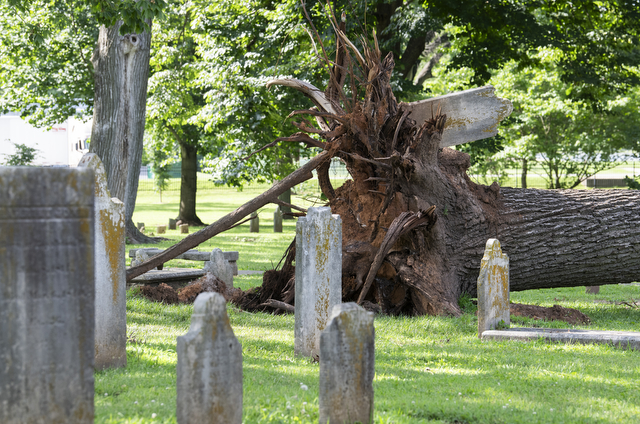The Founding Fathers’ mistake: They didn’t give us a monarchy.
Published 1:39 pm Friday, April 22, 2016
Three years ago, I was giving tours of the nation’s Capitol. It was a fantastic job that allowed me to become immersed in the nation’s history. But there was one part of the tour that always struck me as odd: the fresco painting on the ceiling of the Capitol dome.
“The Apotheosis of Washington,” by Constantino Brumidi, hovers 180 feet above the bustling tour groups in the Capitol rotunda and depicts the afterlife of George Washington. Here, the nation’s first president sits in the heavens, surrounded by Roman gods as he prepares to become a deity himself. The ” Apotheosis” represents a fascinating facet of the American psyche: the yearning for a national monarchic symbol. Despite the government’s foundational republican ideals, Americans still prop up their presidents — both past and modern — as icons of central power.
The ” Apotheosis” isn’t the only instance of Washington being given the deity treatment. In 1832, artist Horatio Greenough sculpted a half-naked version of Washington for the Capitol rotunda, based on the long-lost statue in the Temple of Zeus . Despite Washington’s perfectly sculpted washboard abs, the statue was so massive that it threatened to break through the Capitol’s floors, and Congress eventually decided to hand the statue over to the Smithsonian. I imagine that if George Washington – the man who forcefully rebuffed any form of public praise — had seen either piece, he would have been violently repulsed.
Today, pundits often deride presidential power as tyrannical or king-like, but a number of the Founding Fathers explicitly argued that the Constitution was designed to afford a limited monarchy. Early on, Congress decided that “Mr. President” was the only suitable title for Washington, but in the rush to throw off the yokes of monarchy, the framers saddled the president with two competing roles: the head of state and the head of government.
Most other developed countries made a distinction between the two roles as they democratized. Queen Elizabeth, for example, is the proud and nonpartisan symbol of England; Prime Minister David Cameron regularly gets waist-deep into political controversy.
The British monarchs represent their government as figureheads and serve as hosts to visiting national leaders, upholding a tradition that remains above politics. Meanwhile, the prime minister is the government official who is held accountable to the people – he’s much more powerful, but far less dignified. American presidents must carefully combine these two roles, and during state visits, the line between being polite to foreign diplomats and making political statements when foreign policy demands it is quite narrow.
But even if we do not have a solidified “head of state” position in our government, Americans do find a way to fill in the hole of the nation’s culture: They use the Founding Fathers. Just as the monarchy in Britain is a tradition of the nation still worthy of reverence, for many Americans the wise men who joined together and penned the Declaration of Independence are beyond reproach.
It results in a sort of hyperbolic mythos, depicting these ordinary men as gods or, more frequently, individuals gathered together in divine providence. Yet we rarely mention that George Washington was generally pretty lousy at unifying his own Cabinet, letting a massive political divide get between him and his closest allies. When Thomas Jefferson left his administration, Washington never forgave him and declined to speak to him again. Jefferson, on the other hand, would have never gotten back in touch with his rival John Adams if it weren’t for Abigail Adams forcing the two to reconcile.
That sounds more petty and human than godlike to me. But is depicting our nation’s presidents as iconic symbols problematic? I understand the tendency to glorify American history: In the absence of an alternative, the presidency has to become the de facto cultural symbol for the nation. For better or worse, political culture is often just as important to a nation as its political institutions.
–Robert Gebelhoff contributes to The Washington Post’s Opinions section.
monarch-comment






